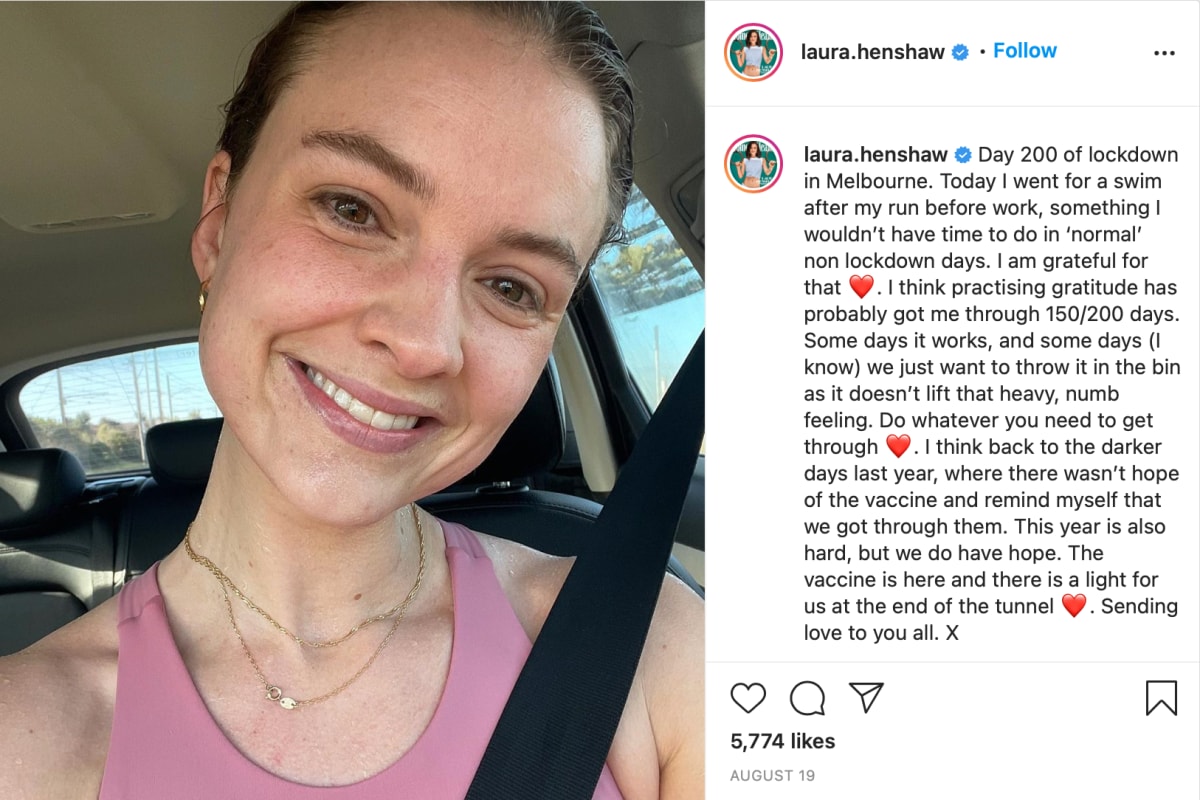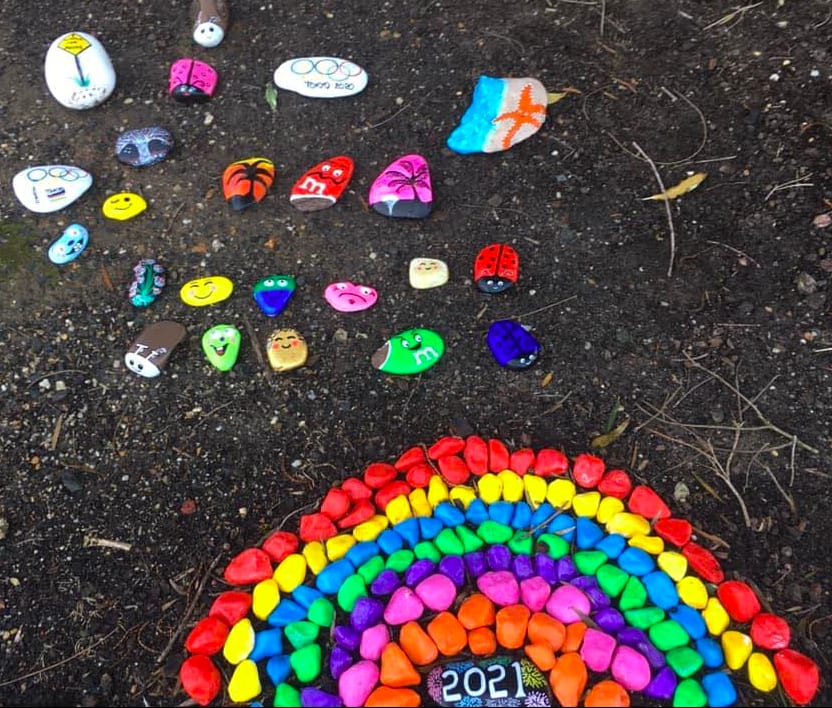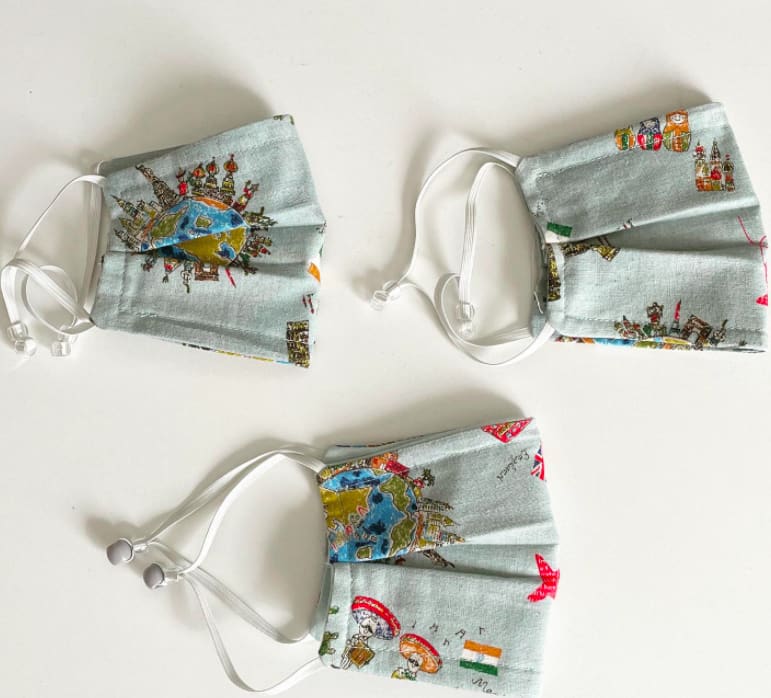BY HANNAH VELLA
Wednesday 18 August marked an ominous date in Melbourne – 200 cumulative days of lockdown.
What was a commemorative day of sorts for the struggles Melburnians had endured over the past year and a half, also provided an opportunity for many to reflect.
Social media surged with commemorative posts for our 200 days gone, one noticeable thread tied the posts together - gratitude.

From small businesses to influencers, and your everyday social media users, posts were created in honour of the date with reflections on what they were grateful for.
It marked a welcome shift in tone from the saturation of sad and grieving posts about our days in lockdown, to more positive messages of gratitude and hope.
Regional Victorian resident Lynn Cowlishaw is a reassuring positive voice in her coastal town. As a school receptionist, she has gone out of her way during the pandemic to drop off laptops and school supplies to students learning remotely, and checked on the wellbeing of their families.
For Ms Cowlishaw, the hardest part of lockdown was “about 15 months ago...when [she] couldn’t see [her] grandchildren”.
With her family living far away, Ms Cowlishaw found solace in creativity when she started rock painting.
“I saw it on Facebook, so I then started painting ladybirds and bumble bees and things like that for the kids. I put their names on it and put it in the garden, or gave it to them,” Ms Cowlishaw said.
“Over the last year I have painted over 1000 rocks and I drop about seven or eight on the weekends in parks... I’ve got 297 members on my Facebook page,” she said.
“It was a way to get out, [have] a big walk and a rock drop. My husband is a painter so we do that together.”
Ms Cowlishaw said her new hobby has given her time to reflect on what she is grateful for.
“It’s made me a lot more grateful about what I have in my life. It's made me realise I'm running out of time,” she said.
“It's made me realise I want to travel around more. I'm thinking of retiring at the end of March to travel.
“It’s just made me grateful for the simple things, for my family. They live in Werribee so FaceTime and just things like that [make] me appreciate what I have."

Ms Cowlishaw’s advice for people struggling at the moment would be to always say “hello” to people and check in on them.
“When I'm out walking I always say hello to people, even without eye contact,” she said.
“I think it makes you more appreciative that other people are probably really, really lonely.
“You walk away hoping that you are at least the one person that they have spoken to today.
“I now ask people more if they are okay... I think I was more selfish in the past, I definitely appreciate life and people more now."
Fourth-year teaching student Jamie Fryar was on his sixth day of placement when one of his students tested positive for COVID-19.
“It all happened so quickly. It was all good - I was on placement, loving life, getting ready to teach full time, and all that just got ripped from under me very suddenly. Then iso for two weeks was not fun,” he said.
Mr Fryar was able to continue his placement in remote learning.
“Managing student wellbeing was difficult. It was hard to see how they were doing, how they were coping with work,” he said.
“Getting on a Zoom is not the same as being in a classroom. You lose that face to face connection you get from a classroom.
Despite the challenges, Mr Fryar said remote learning “makes you a lot more grateful for the connections when you have them."
Mr Fryar said he was grateful for his health.
Regional Victorian resident Nicola Stuart and her family of four all contracted COVID-19 just a few months ago.
Ms Stuart said contracting the virus “highlighted how fragile things can be”.
“I’m the one that looks after everyone in the family and there was nothing I could do for anybody,” Ms Stuart said.
With her son-in-law being admitted into ICU, the uncertainty of what would happen to her family felt like “living on a knife's edge”.
At the beginning of the pandemic, Ms Stuart made masks in support of the local palliative care unit that looked after her family and daughter who passed away 17 months ago, of an unrelated illness.
“I left the masks at the school with a label saying if you take them, you could donate to the palliative care team and give them an email address,” Ms Stuart said.
“Everybody did, and we raised $1300.”

Ms Stuart is both hopeful and grateful, despite her and her family's health having been deeply affected by the pandemic.
“Life has been disrupted, [and] in the scheme of things it feels like forever. But it’s not, life is going to go on probably very differently, but it will eventually be normal,” she said.
If you or someone you love is struggling with lockdown, please contact Lifeline on 13 11 14 or via its website.